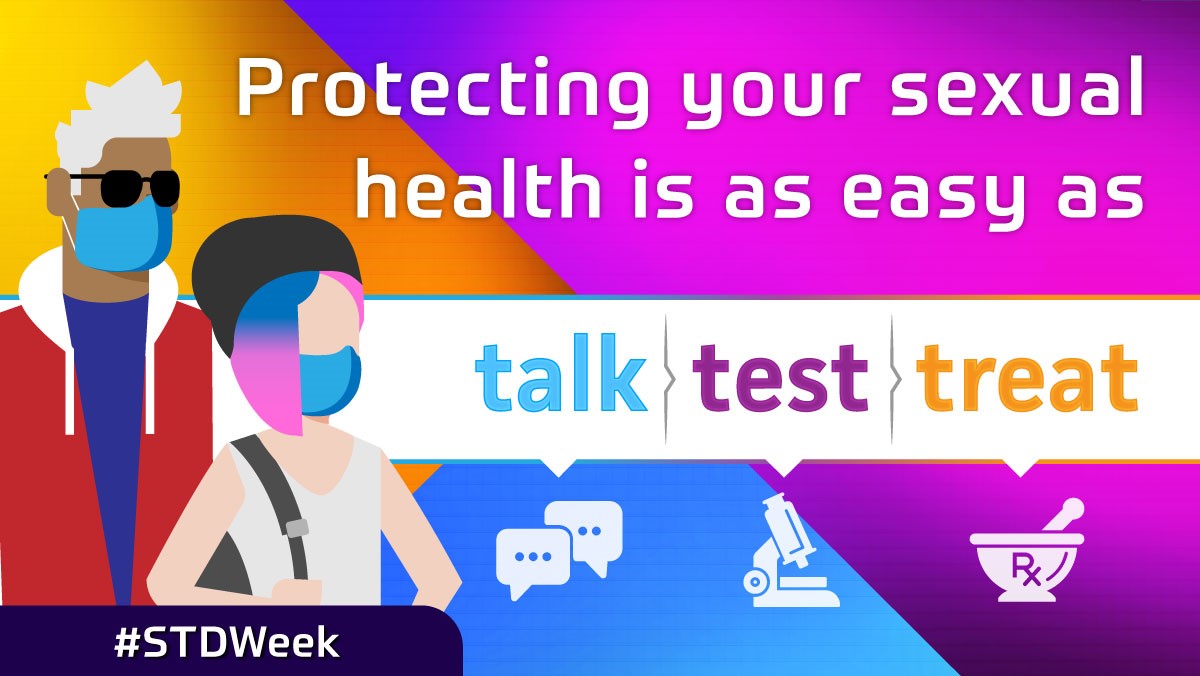Sexual Health Program
This site contains HIV/STI prevention messages that may not be appropriate for all audiences. If you are not seeking such information or may be offended by such materials, please exit this website.
Scott County Health Department will provide STI clinical services by appointments.
Services will be offered on Tuesdays from 12:30pm to 3:30pm, Thursdays from 8:30am to 11:30am and 1:00pm to 4:00pm, and Fridays from 8:15am to 11:15am. Please call (563)-326-8618 to be screened for an appointment.
Sexually Transmitted Infections (STIs), are among the most common infectious diseases in the United States today. STIs may cause serious complications including cancer, infertility, ectopic pregnancy, neurological damage and death.
The annual cost of STIs in the United States is estimated to be well in excess of $16 billion. Hundreds of people each year depend on the Scott County Health Department for STI education, testing and treatment.
- Services Offered
- Conditions for Using the Scott County Health Department Clinic
- Clinic Hours and Staff
- What to Expect
- Getting Test Results
- Statistics for Scott County
- Reference Common STI's
Clients coming to the STI Clinic will need to show identification to be seen. Please bring one of the following items:
- Picture ID with name
- School/College ID
- Driver's License
Sexual health is an essential element of overall health and well-being. If you are sexually active, or thinking of becoming sexually active, it is important that you Talk. Test. Treat. to protect your health. The Centers for Disease Control and Prevention shares how these three small actions can have a big impact on your sexual health!
Talk
Talk openly and honestly to your partner(s) and your health care provider about sexual health and STIs.
Talk with your partner(s) BEFORE having sex. Not sure how? Here are some tips to help you start the conversation.
Talk with your health care provider about your sex life as it relates to your health. This helps your health care provider understand what STI tests you should be getting and how often.
Not all medical checkups include STI testing, so don’t assume that you’ve been tested unless you discuss it with your provider. If your provider does not discuss sex or STI testing with you, bring it up.
Ask your health care provider whether certain vaccines, like the hepatitis B vaccine or the HPV vaccine are right for you.
TEST
Get tested. It’s the only way to know for sure if you have an STI.
Many STIs don’t cause any symptoms, so you could have one and not know. If you’re having sex, getting tested is one of the most important things you can do to protect your health.
Learn which STI tests is recommended for you. Even if you’re pregnant, you can still get an STI. If you’re having sex, you’re still at risk.
If you’re not comfortable talking with your regular health care provider about STIs, find a clinic near you that provides confidential testing that’s free or low cost.
TREAT
If you test positive for an STI, work with your health care provider to get the correct treatment.
Some STIs can be cured with the right medicine, and all STIs are treatable. Your health care provider can talk with you about which medications are right for you.
For more information on how you can protect your sexual health visit:


